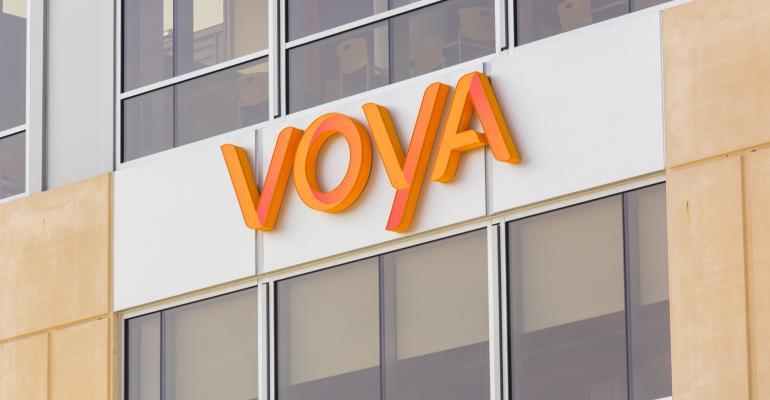Voya Financial Advisors will pay nearly $23 million for alleged mutual fund share class selection violations, according to a Securities and Exchange Commission administrative order filed Tuesday. The commission also faulted the $15.9 billion firm for failing to disclose conflicts of interest in its use of certain products.
The order is the latest in a recent run of SEC actions against firms alleging they failed to disclose conflicts around mutual fund share class selection.
From the beginning of 2013 through the end of 2018, Voya representatives made purchases for clients in different types of share classes for certain mutual funds, according to the SEC. Many funds offer share classes that boast similar objectives but differ on the fee structure. Some classes charge 12b-1 fees that cover some costs that are deducted from the mutual fund’s assets, paid to the fund’s distributor, and typically remitted to the broker/dealer who recommended and conducted the investment.
This can result in a situation where a client could be purchasing funds in a share class with higher fees when a lower-cost option with similar goals is available, according to the commission. The SEC claimed that Voya tended to advise clients to purchase share classes with such fees. According to the order, Voya claimed on its Form ADV that some clients were invested in share classes without 12b-1 fees, but those that weren’t needed their asset holdings to clear a certain asset minimum to qualify for “Class I” shares that did not charge fees.
“This statement was not true for many mutual funds,” the order read. “Voya’s advisory clients were routinely eligible to invest in many mutual funds that offered Class I shares to advisory clients with no asset minimum or waived such asset minimums.”
The SEC order also claimed that Voya monitored sales activities to ensure that client recommendations were “appropriate,” but the firm allegedly didn’t monitor its brokers’ selections of mutual fund share classes. Voya eventually revised its Form ADV to state that it would credit client accounts when it received 12b-1 fees for funds, but a coding error meant that 15% of the fees generated during that time were not rebated, the order read.
“Ensuring that our customers receive the appropriate products and services to help them meet their retirement needs is core to our focus as a company,” Voya spokeswoman Laura Maulucci wrote in an emailed statement. “Restitution (including interest) is being paid to our customers, and we have revised our procedures and disclosure to avoid a recurrence of this issue.”
The SEC also found alleged disclosure lapses in revenue sharing agreements Voya had with certain cash sweep money market funds. In these funds, brokers could hold uninvested client cash until they decided how best to invest it. Under this arrangement, an unnamed clearing broker agreed to share a portion of revenue generated from certain money market funds with Voya, according to the SEC. But this led to a situation where Voya was allegedly recommending funds where they benefited from higher revenue sharing, but also had higher fees and lower yields than other options, the SEC argued. Between 2013 and August 2017, Voya recommended and invested more than 97% of its advisory clients’ uninvested cash into two particular funds offering the highest available rates of revenue sharing, according to the commission.
The commission also knocked the firm for the way it allegedly presented purchase options for illiquid alternative investments. Not typically listed on exchanges, shares of these investments are typically directly sold by b/ds or advisors to investors, according to the SEC. While clients will often pay an upfront brokerage commission, this is waived for investment advisor clients. In the case of Voya, the firm prohibited illiquid alt purchasing via advisory accounts, with the only option being through a brokerage account with a commission, according to the SEC. While the firm waived advisory fees on assets invested through brokerage accounts, some clients still paid higher fees than they would have otherwise, the SEC said.
Voya agreed to pay disgorgement of about $11.5 million, prejudgment interest of about $2.4 million and a civil penalty totaling $9 million.
Numerous firms have been on the receiving end of SEC litigation since April, when the SEC filed its final actions concerning firms who self-reported during the regulator’s Share Class Selection Disclosure Initiative. The commission launched the initiative in February 2018 so firms could self-report violations without additional penalties, provided they returned money to affected clients. Firms were required to self-report by June of that year, and it returned nearly $140 million to investors, according to the SEC.
Last week, Timothy Pagliara, the CEO and founder of Franklin, Tenn.-based CapWealth Advisors, told WealthManagement.com he planned to fight SEC charges that he had failed to disclose conflicts concerning mutual fund share classes, calling the commission’s actions against his firm “frivolous” and “exploitative of their power.”




